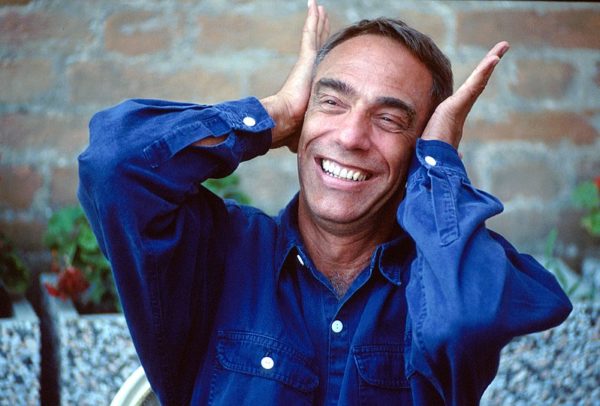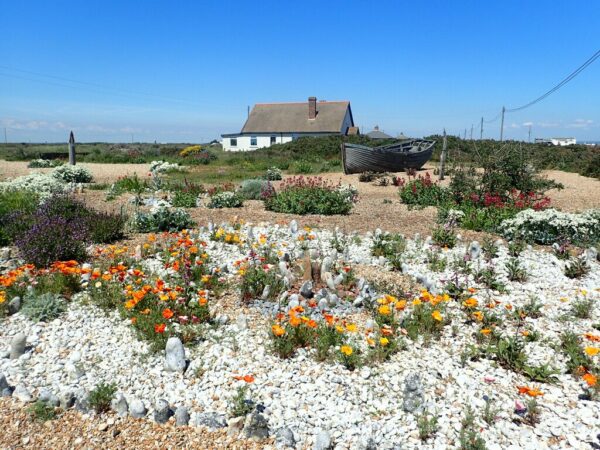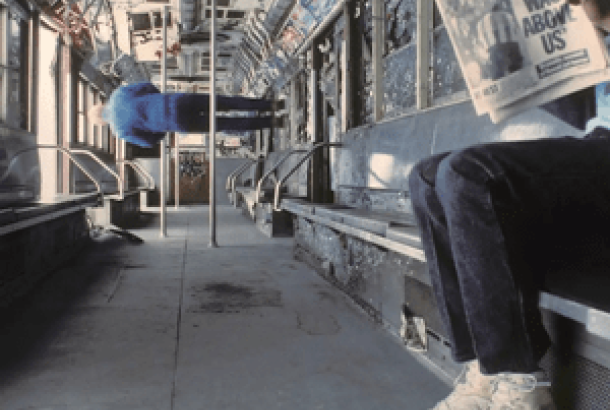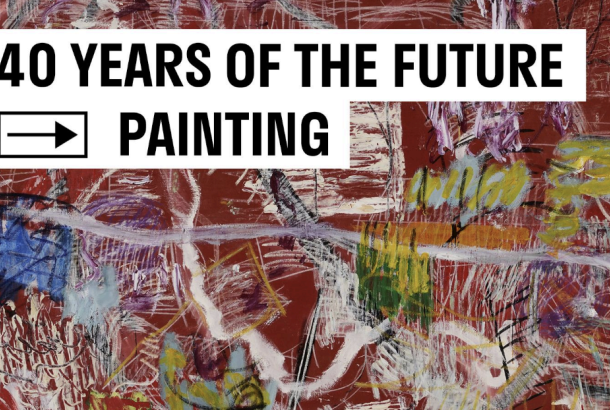Derek Jarman: PROTEST! Art and Activism collide at Manchester Art Gallery
By Sarah Taylor

In the very heart of Manchester city centre lies Manchester Art Gallery, a beautiful Greco-Roman façade, housing an amalgam of oil paintings, watercolours, sculptures, and drawings spanning a millennium. After several lockdown-related delays, Derek Jarman: PROTEST! finally opened at Manchester Art Gallery on 2nd December 2021, marking the city’s first major retrospective collection of the artist and activist.
Jarman’s name is one that penetrates all corners and realms of art and culture. A prolific filmmaker, expert videographer, attentive gardener, meticulous set designer, and masterful painter – not to mention an outspoken LGBTQ+ and AIDS activist; it is difficult to compress Jarman’s work and achievements into a comprehensive exhibition.
The exhibition is in loose chronological order, chronicling Jarman’s journey from his Paul Nash-inspired surrealist portraits to his avant-garde film-making and iconoclastic experimentation with mixed media, amalgamating broken glass, bone, coinage and general detritus.

Suspended from the wall is a prosthetic leg, embellished with shards of mirror – this served as the trophy for winning Andrew Logan’s Alternative Miss World competition in 1975, an event described by Vincent Dowd as a “pansexual beauty pageant.” Shots of Derek Jarman in character as Miss Crepe Suzette at the 1975 pageant are exhibited, with the artist dressed in a glorious silver bejewelled dress and ornate pearl headdress.
Black and white photographs depict Jarman’s humble beginnings as stage designer for such plays as Don Giovanni and The Devils, alongside stills from his adaptation of The Tempest (1979) and Jarman’s muse, actress Tilda Swinton, in her feature film debut, Caravaggio (1986). The latter may be his most acclaimed work, however his politically charged piece de resistance The Last of England (1987) prevails.
Openly gay, Derek Jarman was working at a time where Margaret Thatcher’s homophobic Section 28 laws prohibited the ‘promotion’ of homosexuality. Simply creating, as he did, was an act of defiance, but The Last of England fearlessly addressed these issues. Jarman famously worked with Super 8mm film, oscillating between experimental and arthouse.
In one cinematic room, an abundance of music videos – all directed by Derek Jarman – play on a loop. He worked with iconic musicians across the board, from The Smiths (‘The Queen is Dead’, ‘Panic’, ‘There is a Light That Never Goes Out’, ‘Ask’) and Suede (‘So Young’), to the Pet Shop Boys (‘It’s a Sin’, ‘Rent’, ‘Violence’) and Patti Smith (‘Memorial Tribute’).
In 1988, Derek Jarman publicly declared that he had been diagnosed with AIDS – on exiting the exhibition there is a cabinet containing informative leaflets from HIV and AIDS charity, the George House Trust.
His 1993 film Blue is shown in one room: an intense cobalt screen, representative of Jarman’s deteriorating eyesight as a result of AIDS-related illness. His utterances are heard, as he ponders his remaining days. It is difficult to look at for a prolonged period – in fact, if you’ll forgive the pun, it’s jarring – and yet that is its purpose.
Another of his films, Jordan’s Dance depicts a Swan Lake-style ballerina, pirouetting through flames, surrounded by union jack flags and observed by a figure with a bag on their head. Below this screening, glass cases hold Jarman’s personal scrapbooks and photo albums.
A series of his unsettling and potentially blasphemous mixed media works are displayed combining crucifixes with barbed wire, whips, clocks, and feathers. He-Man action figures are glued to canvases beside crushed coke cans and empty blood bags. Each object intentionally placed, juxtapositions of strength and fragility, restriction and freedom.
It is a true audio-visual experience, evoking the spirit of Derek Jarman, whilst simultaneously celebrating his impact. Video footage from his 1989 exhibition at Glasgow’s Third Eye Gallery sees Jarman discussing his support for, and subsequent disillusionment with the Labour Party. He guides observers through each collage, and the contradictions continue: quotes from The Watchtower are placed beside pages of Shakespearean dialogue, Renaissance art, and the teachings of Plato.

Meanwhile, several of Jarman’s provocative slogan paintings are featured in the exhibition; the front pages of The Star newspaper with the fearmongering headline ‘Filth!’ are dashed with black and red paint, the word ‘Morphine’ etched across. Another similarly confrontational painting is inscribed ‘F–k Me Blind.’ One canvas, titled Pill Pusher, is thickly layered with alarming shades of red and orange paint.
In 1986, Jarman bought Prospect Cottage, notable for its proximity to the gloomy Dungeness Nuclear Power Station and spent much of his final years cultivating a garden which offered solace in a time of turmoil. He combed the beach for shells and shingle, arranging it amongst the foliage and chronicling this mindful period in diaries which became the book, Modern Nature (1991).
Derek Jarman died of AIDS-related illness on 19th February 1994. He remains one of Britain’s most prolific and influential creatives. An enormous image of Jarman seated outside Prospect Cottage is emblazoned on the wall, in all its vibrancy, marking the end of the walk-through exhibition. At times incongruous, and perhaps appropriately so given its namesake’s tendency for juxtaposition, PROTEST! manages to convey all aspects and avenues of Derek Jarman’s career.
Not to be missed, Derek Jarman: PROTEST! Runs until 10th April 2022. Admission is free of charge.
You can read Managing Culture Editor Michal Wasilewski and former Arts Editor Sam Burt’s article discussing Jarman’s singularly profound legacy here.







